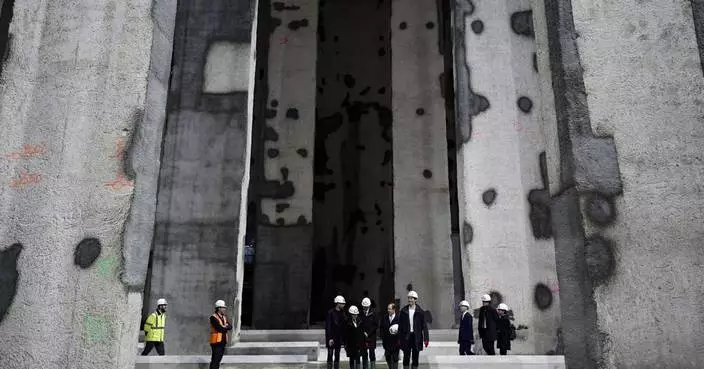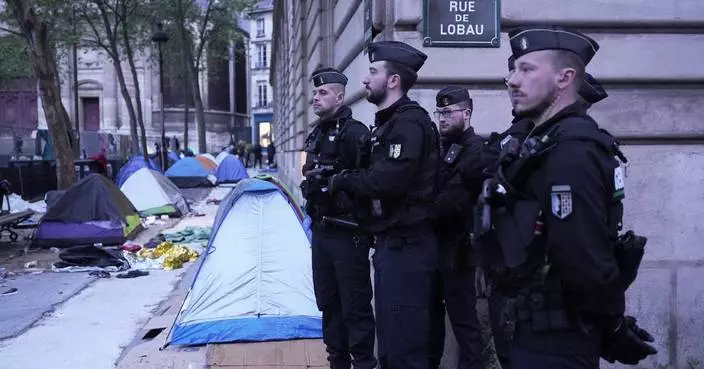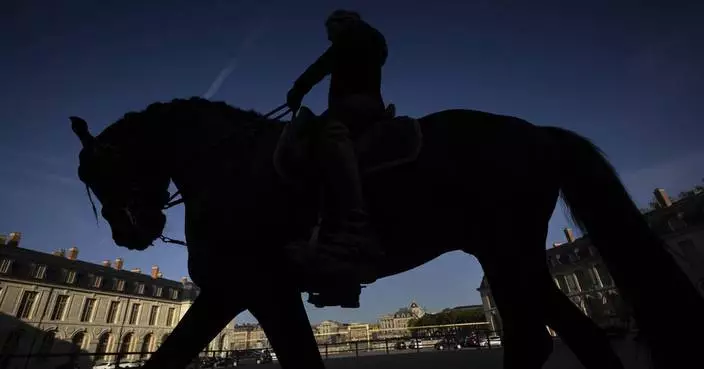Tracers lit up the night. Explosions rocked the stadium, and the acrid smoke that followed the rockets' red glare left some in the crowd coughing and choking. By the time it was all over, giant flames licked toward the sky as the envoys of two enemy governments watched warily.
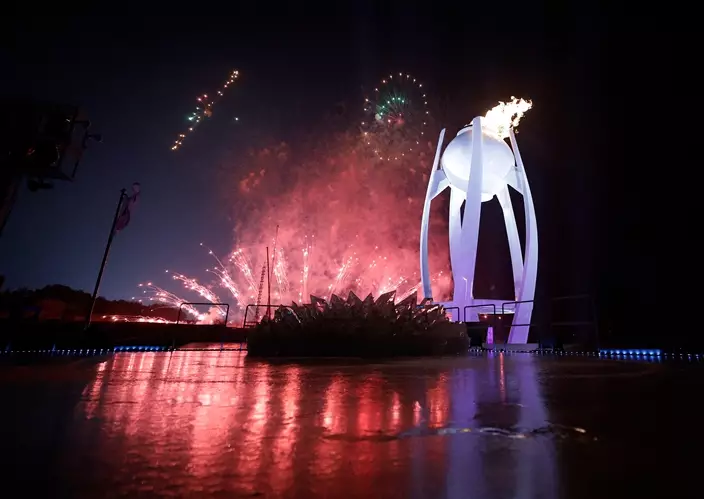
Fireworks explode behind the Olympic flame during the opening ceremony of the 2018 Winter Olympics in Pyeongchang, South Korea, Friday, Feb. 9, 2018. (AP Photo/David J. Phillip,Pool)
It rained fire into Olympic Stadium for parts of two hours on Friday night, and no one panicked — not the North Koreans, not the South Koreans, not the Americans. In fact, everyone seemed thrilled.
Click to Gallery
Tracers lit up the night. Explosions rocked the stadium, and the acrid smoke that followed the rockets' red glare left some in the crowd coughing and choking. By the time it was all over, giant flames licked toward the sky as the envoys of two enemy governments watched warily.
It rained fire into Olympic Stadium for parts of two hours on Friday night, and no one panicked — not the North Koreans, not the South Koreans, not the Americans. In fact, everyone seemed thrilled.
It is North Korea, of course, whose aggressive words and unwavering commitment to its nuclear program have the world frightened at what it could do next. And it is the United States whose aggressive response and unabiding commitment to a denuclearized North Korea have been ratcheting up the rhetoric in recent months and, some say, grooming the world for war.
By ceremony's end, when a celebrated South Korean skater turned a handheld torch into a cauldron of controlled conflagration in the name of Olympic spectacle, it was hard to miss the message: Watching this skillfully tamed fire, and the many people behind it who want the flames and the games to represent peace, is exactly what we want — not that out-of-control wildfire that will take our world to places we never want to visit.
A young performer participates in the opening ceremony of the 2018 Winter Olympics in Pyeongchang, South Korea, Friday, Feb. 9, 2018. (AP Photo/David J. Phillip, Pool)
All Olympics opening ceremonies are about optics, about intense visuals — and often about meticulously calibrated pyrotechnics in angry colors designed to leave a lasting impression on eyes and mind.
Rarely, though, do such pyrotechnics unfold in front of people who represent two nations believed by the world to be able to rain actual nuclear fire onto the planet.
It was difficult on Friday to watch Kim Jong Un's sister and Donald Trump's vice president sitting within feet of each other, watching the fire-filled opening show for the Pyeongchang Games, and not be reminded of the connection between explosions calibrated for performance and those that could represent actual mass destruction.
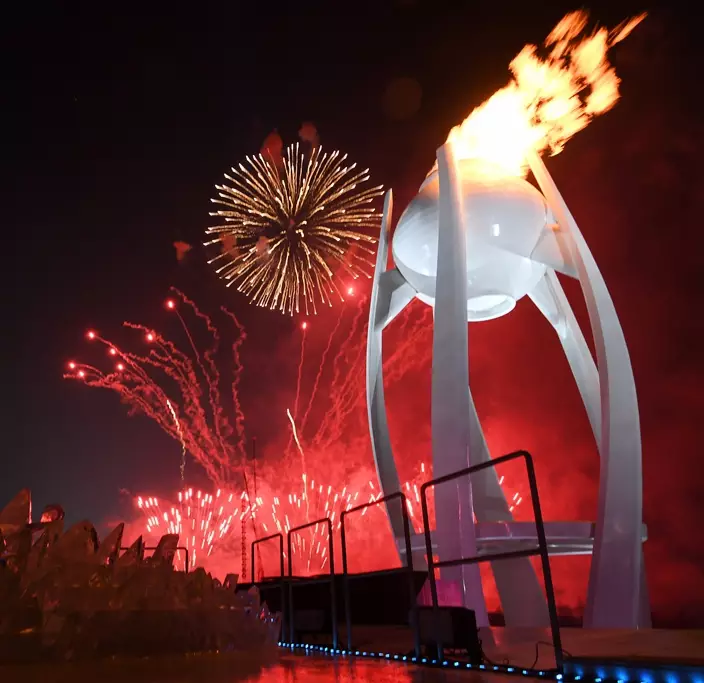
Fireworks explode behind the Olympic flame during the opening ceremony of the 2018 Winter Olympics in Pyeongchang, South Korea, Friday, Feb. 9, 2018. (Franck Fife/Pool Photo via AP)
It is North Korea, of course, whose aggressive words and unwavering commitment to its nuclear program have the world frightened at what it could do next. And it is the United States whose aggressive response and unabiding commitment to a denuclearized North Korea have been ratcheting up the rhetoric in recent months and, some say, grooming the world for war.
Add to that context the South's elaborate efforts to present these as a unified Games, perhaps even a harbinger of a unified Korean Peninsula, and the unexpected, awkward side-by-side presence of Vice President Mike Pence and Kim Yo Jong, and you have an opening ceremony brimming with optics potent enough to compete with the most enduring ancient allegories.
But it was the fire that really stood out. In the context of North Korea and the United States — and the fears some felt about coming to these Olympics, given the political situation that envelops them — the symbolism of the Olympic opening felt not only slick but downright elemental.
The Chinese, one country away from Pyeongchang, came up with fireworks more than a millennium ago. For them, it meant the peaceful use of something explosive and lethal — gunpowder — deployed in hopes the noise and light would scare away evil spirits.
That's not so far off from what happened here Friday night.
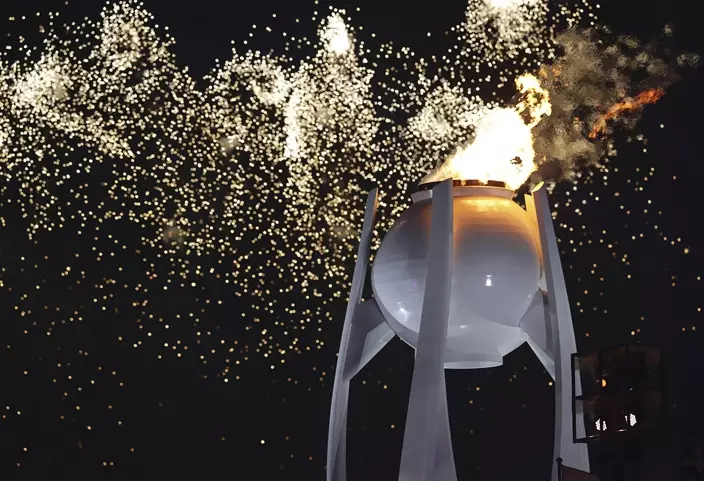
Fireworks explode over the Olympic flame during the opening ceremony of the 2018 Winter Olympics in Pyeongchang, South Korea, Friday, Feb. 9, 2018. (AP Photo/Michael Sohn)
By ceremony's end, when a celebrated South Korean skater turned a handheld torch into a cauldron of controlled conflagration in the name of Olympic spectacle, it was hard to miss the message: Watching this skillfully tamed fire, and the many people behind it who want the flames and the games to represent peace, is exactly what we want — not that out-of-control wildfire that will take our world to places we never want to visit.
On an evening of optics, for those sitting in the stadium, that message carried at least as far as the smoke from the many fireworks that were uncorked here.
They talked of peace, every one of them, these officials of Olympics and nations. But their explosions — their intricate, artful, beautiful explosions, crackling through the bitterly cold night — spoke just as loudly of the war that very few of them want and all of them fundamentally fear.
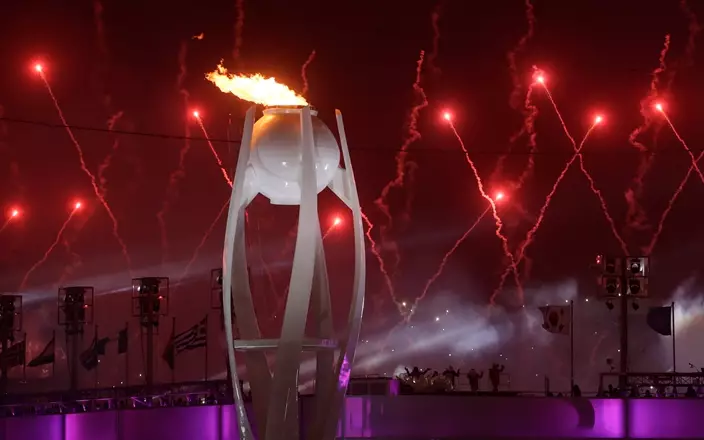
Fireworks explode over the Olympic Stadium during the opening ceremony at the 2018 Winter Olympics in Pyeongchang, South Korea, Friday, Feb. 9, 2018. (AP Photo/Dmitri Lovetsky)
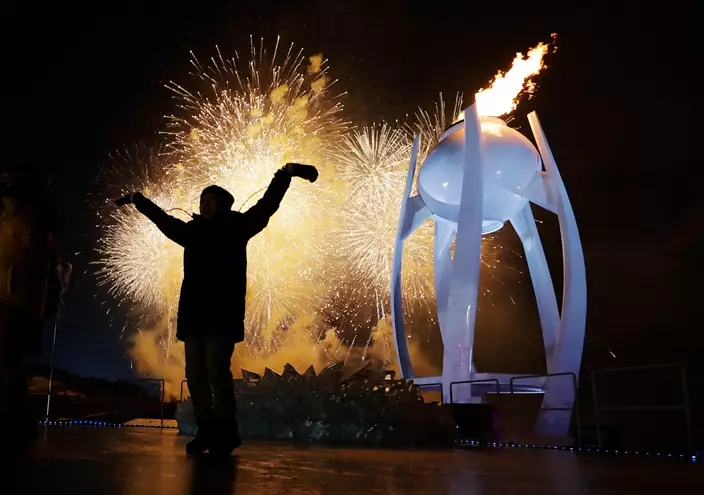
A young performer participates in the opening ceremony of the 2018 Winter Olympics in Pyeongchang, South Korea, Friday, Feb. 9, 2018. (AP Photo/David J. Phillip, Pool)
WASHINGTON (AP) — President Joe Biden has called Japan and India “xenophobic” countries that do not welcome immigrants, lumping the two with adversaries China and Russia as he tried to explain their economic circumstances and contrasted the four with the U.S. on immigration.
The remarks, at a campaign fundraising event Wednesday evening, came just three weeks after the White House hosted Japanese Prime Minister Fumio Kishida for a lavish official visit, during which the two leaders celebrated what Biden called an “unbreakable alliance,” particularly on global security matters.
The White House welcomed Indian Prime Minister Narenda Modi for a state visit last summer.
Japan is a critical U.S. ally. And India, one of the world's fastest-growing economies, is a vital partner in the Indio-Pacific despite differences on human rights.
At a hotel fundraiser where the donor audience was largely Asian-American, Biden said the upcoming U.S. election was about “freedom, America and democracy” and that the nation's economy was thriving “because of you and many others.”
“Why? Because we welcome immigrants,” Biden said. “Look, think about it. Why is China stalling so badly economically? Why is Japan having trouble? Why is Russia? Why is India? Because they’re xenophobic. They don’t want immigrants.”
The president added: “Immigrants are what makes us strong. Not a joke. That’s not hyperbole, because we have an influx of workers who want to be here and want to contribute.”
There was no immediate reaction from either the Japanese or Indian governments. White House national security spokesman John Kirby said Biden was making a broader point about the U.S. posture on immigration.
“Our allies and partners know well in tangible ways how President Biden values them, their friendship, their cooperation and the capabilities that they bring across the spectrum on a range of issues, not just security related,” Kirby said Thursday morning when asked about Biden's “xenophobic” remarks. “They understand how much he completely and utterly values the idea of alliances and partnerships.”
Biden’s comments came at the start of Asian American and Pacific Islander Heritage Month, and he was introduced at the fundraiser by Sen. Tammy Duckworth, D-Ill., one of two senators of Asian-American descent. She is a national co-chair for his reelection campaign.
Japan has acknowledged issues with its shrinking population, and the number of babies born in the country in 2023 fell for the eighth straight year, according to data released in February. Kishida has called the low birth rate in Japan “the biggest crisis Japan faces” and the country has long been known for a more closed-door stance on immigration, although Kishida’s government has, in recent years, shifted its policies to make it easier for foreign workers to come to Japan.
Meanwhile, India’s population has swelled to become the world’s largest, with the United Nations saying it was on track to reach 1.425 billion. Its population also skews younger. Earlier this year, India enacted a new citizenship law that fast-tracks naturalization for Hindus, Parsis, Sikhs, Buddhists, Jains and Christians who fled to India from Afghanistan, Bangladesh and Pakistan. But it excludes Muslims, who are a majority in all three nations. It's the first time that India has set religious criteria for citizenship.
—
Associated Press chief political reporter Steve Peoples and Associated Press writer Aamer Madhani contributed to this report.
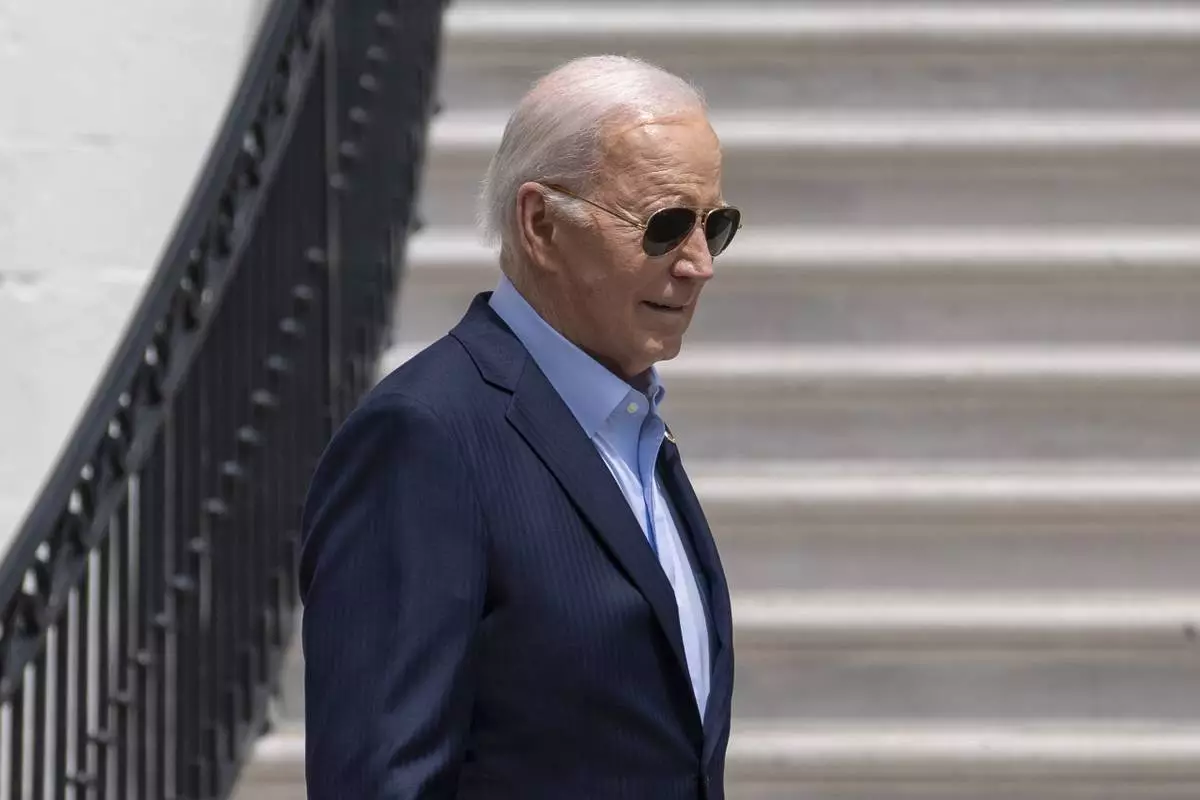
President Joe Biden walks to Marine One for departure from the South Lawn of the White House, Tuesday, April 30, 2024, in Washington. Biden is headed to Delaware. (AP Photo/Alex Brandon)










